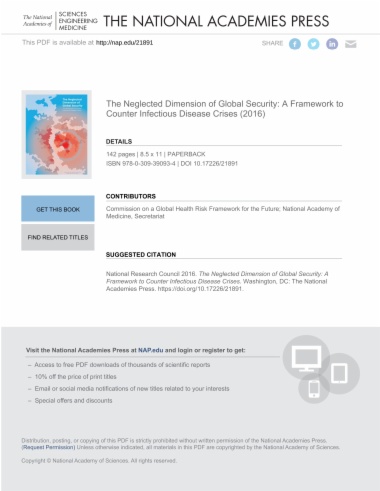

Since the 2014 Ebola outbreak many public- and private-sector leaders have seen a need for improved management of global public health emergencies. The effects of the Ebola epidemic go well beyond the three hardest-hit countries and beyond the health sector. Education, child protection, commerce, transportation, and human rights have all suffered. The consequences and lethality of Ebola have increased interest in coordinated global response to infectious threats, many of which could disrupt global health and commerce far more than the recent outbreak.
In order to explore the potential for improving international management and response to outbreaks the National Academy of Medicine agreed to manage an international, independent, evidence-based, authoritative, multistakeholder expert commission. As part of this effort, the Institute of Medicine convened four workshops in summer of 2015. This commission report considers the evidence supplied by these workshops and offers conclusions and actionable recommendations to guide policy makers, international funders, civil society organizations, and the private sector.